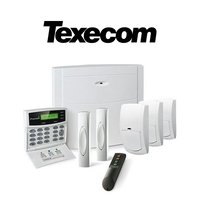Differences between wired and wireless alarm systems?

Introduction:
Today’s alarm and surveillance systems are widely used in banks, restaurants, retail, hotels, transportation, and everywhere. With alarm systems everywhere, we experience a higher level of security in our daily lives. Wired and wireless alarms are an important part of your business surveillance system and can be used to create a secure environment for your employees and customers.
Alarm systems are electronic devices that help users detect intrusions, fires, gas leaks, and deterring crime. There are various types of combined wired and wireless alarm systems related to business protection. When deciding to use an anti-theft alarm to protect your home, the question is, whether the alarm system is better to be wired or wireless, or a combination of wired and wireless. stay with us to know the difference between Wireless Burglar Alarms Vs Hard Wired Systems and also combined wired and wireless alarm systems and make the best decision.
Wired vs Wireless alarm systems
The only differences seemingly are loads of wires and an obvious lack of them, but there are the other differences, and to know which one is better for you, Let’s take a look at the differences between the two types of security alarm systems. There is little difference between the two security alarm systems in most areas.
For many people, the deciding factor is whether their homes already have wired alarms installed. In this case, even replacing it with a wireless alarm has little benefit. Both types of systems will eventually protect your property, but both have their pros and cons. We will look separately at wired and wireless alarm systems and their pros and cons.
Wired alarm systems; pros & cons
To install a wired alarm system Professional wiring is required for all connected devices in the house. Each sensor is connected to the main control panel with a cable that runs around the door frame, usually according to the width of the tree. The system uses a wired connection to communicate with tasks. The system uses a fixed connection to work and communicate. Pros and cons of Wired alarm systems are:
Advantages of Wired alarm systems
Wired alarm security systems are very reliable, but may go unnoticed with your property’s interior design. It’s easy to hide messy wires around ceilings, around window and door frames, and under walls, slabs, carpets, but it’s asking you to undertake some important renovations that may require professional installation services. Other advantages of Wired alarm system are:
- Parts and components of Wired alarm systems are usually less expensive than wireless systems
- Due to the distance between units and control panel, it may be more reliable in large possessions
- The additional cost of range extenders can be avoided for large belongings
- No need to change batteries so maintenance can be cheaper
Disadvantages of Wired alarm systems
Wired alarms can be deployed just as effectively as Wireless alarm systems but sometimes you have to sacrifice aesthetics because cables are running everywhere to achieve the same effect. Also, installing a wired alarm can be a complex and time-consuming task involving many cables. Other Disadvantages of Wired alarm systems are:
- It takes longer to install than a wireless system, which increases the initial cost
- If you want to connect a new cable, the decoration may be damaged during installation
- No profit to take it with you if you want to move and change your home
Wireless alarm systems; pros & cons
If the security alarm is not already installed, wireless is the easiest to install and has about the same performance. Wireless alarms have hidden sensors that use radio waves to connect to the main control panel. The control panel uses your cell phone network to signal out of the house.
Wireless alarms can provide more features than wired alarms. For example, since you are using a mobile network, you can configure some wireless systems to text the landlord when someone enters the house. This is ideal for parents who want to make sure their child has returned home safely.
Wireless alarms can be installed in a much shorter time as there are no issues with unsightly wiring and provide greater flexibility for positioning. This means that the optimal positioning of the security sensor can be easily realized. Other Advantages of Wireless alarm systems are:
- No decorative damage during installation
- The system can be expanded at any time
- You can take your alarm system with you when you want to move and change your home
- Most wireless systems have a built-in voice dialer that allows the alarm to communicate with you when it is activated.
Disadvantages of Wireless alarm systems
Although wireless technology has advanced by leaps and bounds recently, no system is 100% unbreakable. In an article published by the journal Wired in early 2014, two researchers stated that capable criminals could disrupt wireless home alarm settings.
The equipment required to perform the illegal operations mentioned above will be very expensive, but if you are particularly concerned, you should purchase a commercial-grade wireless alarm system or a wired alarm system. Other disadvantages of Wireless alarm systems are:
- Components and parts of Wireless alarm systems are more expensive than wired alarm systems
- The distance between the device and the panel can make it less reliable than a wired system with larger attributes, depending on attribute type or layout
- A range extender may be required if used in a larger property and will add cost
Hard Wired Systems
Hardwired alarm systems are connected to door or window sensors, motion sensors, fire smoke sensors, and other sensors. In other words, wired alarm systems connect or communicate sensors through cables. The equipment cost of hard-wired alarm systems is lower than that of wireless alarm systems, once fully installed they have lower maintenance costs.
Wireless Burglar Alarms Vs Hard Wired Systems
Hard-Wired alarm systems have a complicated installation, compared to wireless alarm systems, they use cables between the alarm panel and sensors, the construction needs to be wired first but that is a large difficulty. as a result of this big shortcoming for Hard-Wired alarm systems, so most people choose wireless alarm systems.

Combined wired and wireless alarm systems
The combined or hybrid wired and wireless system provides installation flexibility without limiting you to the type of console you purchase. Affordable components and Low maintenance costs make it a good choice to purchase such a hybrid wired and wireless system.
In addition, using wired and wireless expanders, a wide range of safety and security devices can be added to the system and a common design style for all hybrid wired and wireless systems combined ensures that the aesthetics of your facility remain consistent.
Hybrid alarm systems offer the best advantages of both wired and wireless alarm systems. They not only provide the highest level of safe and reliable performance but also offer flexibility in configuration and installation.
If you don’t want to choose between a wired and wireless alarm, you can use a hybrid alarm system. Currently, most security companies are offering hybrid alarm systems that include a wireless zone and a fixed zone.
Best alarm systems
wired alarms can be deployed just as effectively as Wireless alarm systems but sometimes you have to sacrifice aesthetics because cables are running everywhere to achieve the same effect. On the contrary, the wireless alarm can be installed in a shorter time and has greater flexibility in positioning, because there is no unsightly wiring problem. This also means that you can easily find the best location for your safety sensor.
Texecom alarm systems, as a leading manufacturer of wired and wireless alarm systems, offers two series of alarm systems, Veritas alarms, aimed at homeowners and small businesses, and Premier Elite, primarily aimed at establishments. commercial. Texecom is also using Ricochet mesh technology in its products. A Ricochet compatible wireless device for repeating by receiving wireless transmissions from other devices.
Since the wireless signal is not limited by point-to-point communication, the size, scalability, and scalability of the overall system have been expanded. With Ricochet-compatible systems and peripherals, the Premier Elite Texecom wireless kit can be expanded with additional peripherals and is compatible with SmartCom communications devices and a wide range of technical services.
How to buy the best burglar alarm
The safety system guarantees peace of mind. Whether you want to discuss wired and wireless alarm systems, or want to know more information, the best way to start discussing whether a wired or wireless alarm system is suitable for your property is to discuss your needs face to face afterward and check correctly.
Wired alarms can be deployed just as effectively as Wireless alarm systems but sometimes you have to sacrifice aesthetics because cables are running everywhere to achieve the same effect. Ultimately, the most important factor in deciding whether to wired and wireless alarm systems is these situational factors. The best alarm for your home depends on your personal taste, budget, area of residence, home condition, level of protection required, and response.
We’re offering the best intruder alarms in the UK such as Ajax alarm system, Texecom & Pyronix with competitive prices for traders.












